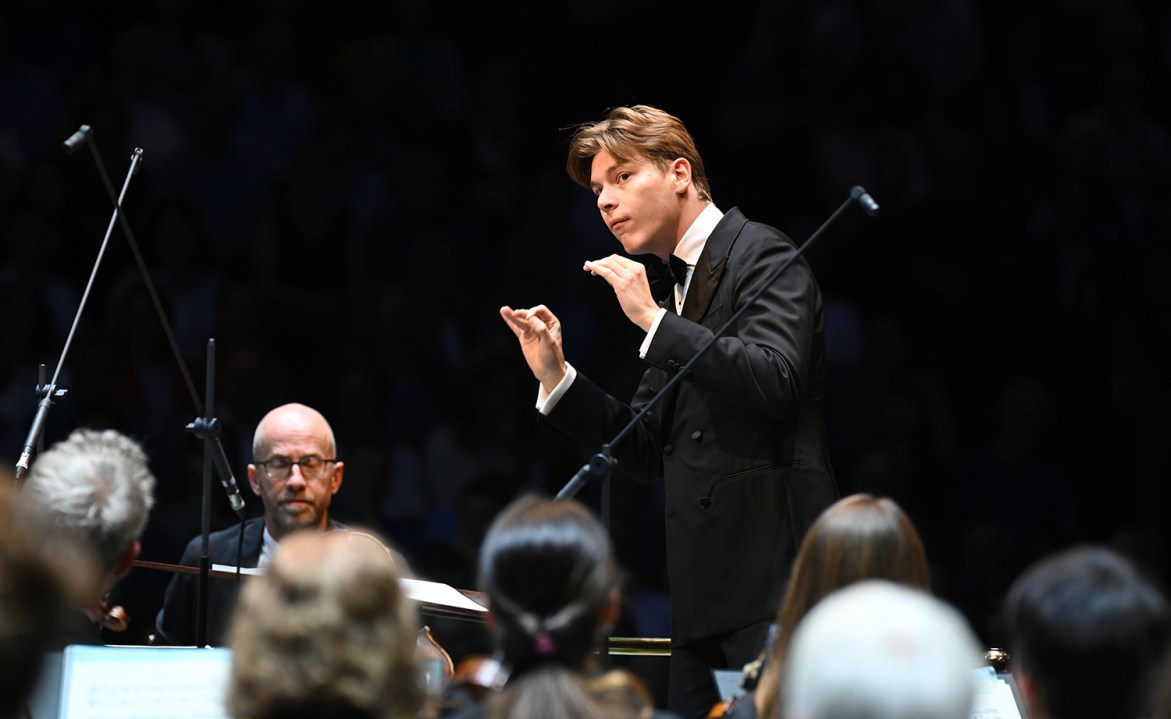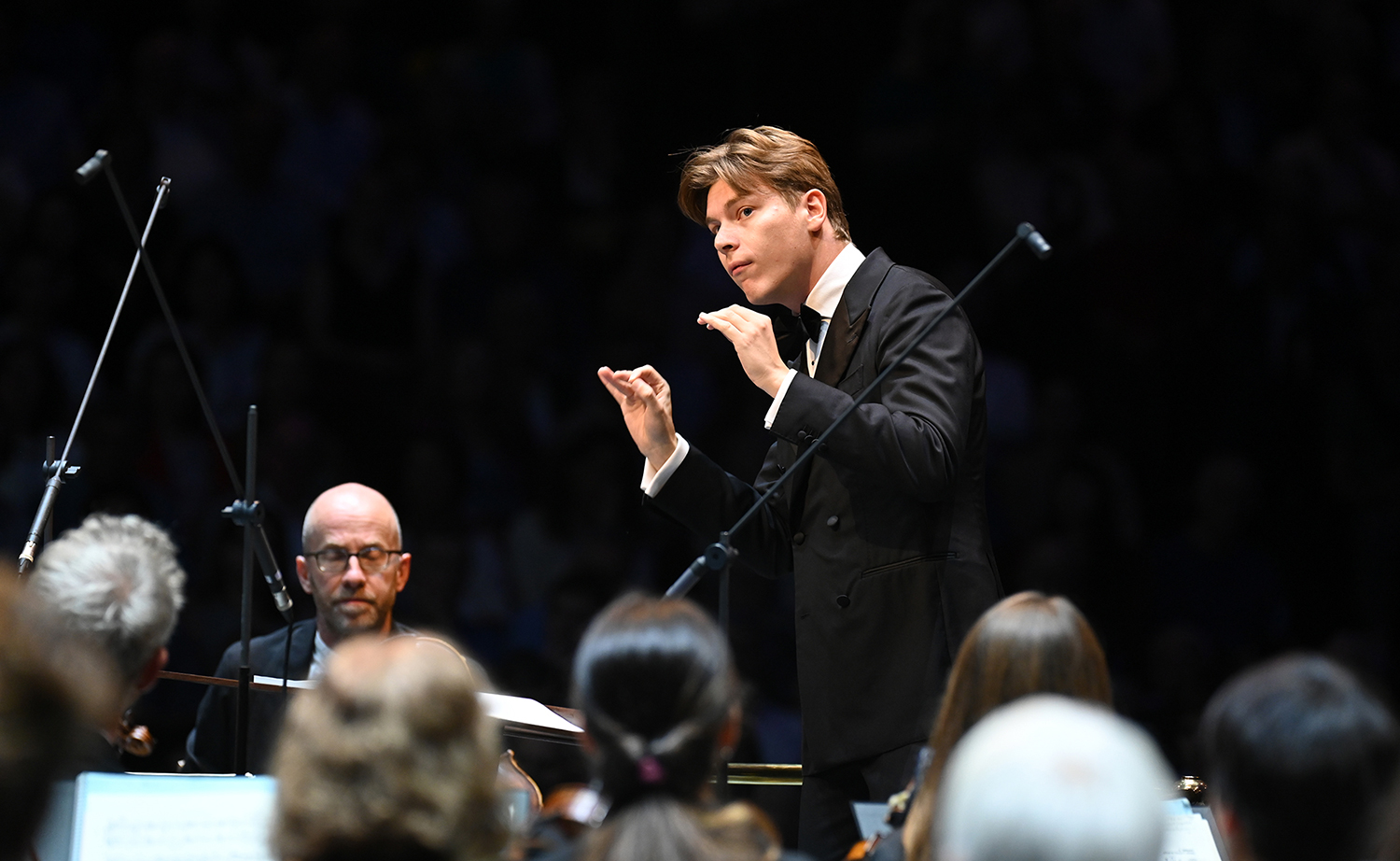Klaus Makela is kind of a big deal. He’s a pupil of the Finnish conducting guru Jorma Panula – the so-called ‘Yoda of conducting’ – and he’s chief conductor of the Oslo Philharmonic as well as the Orchestre de Paris. Within the next three years he’s scheduled to take the baton at both the Chicago Symphony and the Royal Concertgebouw Orchestra in Amsterdam: blue-chip international positions, with fees to match. So we’re going to be hearing a lot more from maestro Makela, though possibly not in the UK where he has almost certainly (barring the LSO and Covent Garden) been priced out of the market. He is only 28, though apparently his agents would prefer it if you didn’t talk about that.
Makela has potential by the bucketload: personality might take a little longer
And yet the history of music is peppered with prodigies: artists who appear, on the face of it, to be too young to have attained competence let alone genius, and yet somehow had access to the sublime. Mozart was dead at 35, Schubert at 31. Mahler completed his Ninth Symphony – a death-haunted farewell – before his 50th birthday. No, the kids are – more often than not – all right; and frankly, if you’re serious about taking on four major international leadership roles in the space of a decade, it probably helps to be bright-eyed and firm-limbed. Only a cynic would suggest that for four major orchestras to pursue the same largely untried conductor in the space of a decade shows a certain desperation. Is the global talent pool really so small?
Still, at some point even the shiniest rising star needs to do the legwork. In fairness, people who know him report that Makela is one of the good guys; an inspiring and collegial artist. There are stories of orchestral players queuing up to shake his hand at the end of concerts. But the qualities that musicians prize don’t always translate into a compelling experience for the audience, and from what I’ve heard of Makela’s work so far, he’s very far from a finished product.
I swear – I hope – that this isn’t just a contrarian instinct; the critic’s eternal urge to damn the popular and successful. A lot of serious people take Makela very seriously and one thing that was clear at his Prom with the Orchestre de Paris was just how much his players seemed to like him. Ignore the flashy podium technique – that’s a matter for the performers, not the audience. More significant were the smiles on the players’ faces as they took their applause, and their refusal to rise to their feet: in effect, renouncing their share of the acclaim and granting it to Makela alone.
Most significant of all (and probably the best indicator of Makela’s future quality as an interpreter) was the space he gave to the individual players to shape and pace their various solos – a freedom that rescued an over-manicured Prélude à l’après-midi d’un faune (this faun was more like a Boulevard Haussmann dandy than a sensuous nature-spirit) and flooded Stravinsky’s Petrushka with primary colours. The Parisians duly ran up the Tricolore and let it fly – tart, reedy clarinet solos, shimmering tissues of woodwinds and strings and a quizzical solo trumpet who never let you forget that Petrushka is Russian for Pierrot. This was Stravinsky double-filtered through Ravel, and all the more flavoursome for it. Makela almost never got in the way.
And after all, isn’t that exactly what we’re always saying we want: a conductor who subtracts himself from the equation, and lets the music speak? Careful what you wish for; at least when dealing with a creative personality as flamboyant as Hector Berlioz. Makela’s Symphonie Fantastique was smartly paced; and again – from a citric solo cor anglais to a percussion section in imaginative overdrive – Makela allowed his players to make the running. But where was the big picture? It all felt oddly neutral – a tasteful library-choice interpretation of one of the most transgressively tasteless masterworks in all music. Makela has potential by the bucketload: personality might take a little longer. I’ll keep listening.
Meanwhile, visiting the Royal Opera House during the Proms feels a bit like seeing ‘Back to School’ signs while the summer holiday still has a fortnight to run. The new season has opened with a solidly cast revival of David McVicar’s Regency-set Marriage of Figaro, solidly conducted by Julia Jones. Huw Montague Rendall is a feline Count and Ginger Costa-Jackson is a randy, hormonal Cherubino. The most striking new variable is the Susanna of Ying Fang, who sang radiantly, with an underlying seriousness and a lovely melancholy way of ending her phrases that makes you wonder what she’d be like as the Countess. It’s a performance that doesn’t so much sparkle as glow, giving the whole opera a dying fall. Does anyone else feel a touch of autumn in the air?








Comments